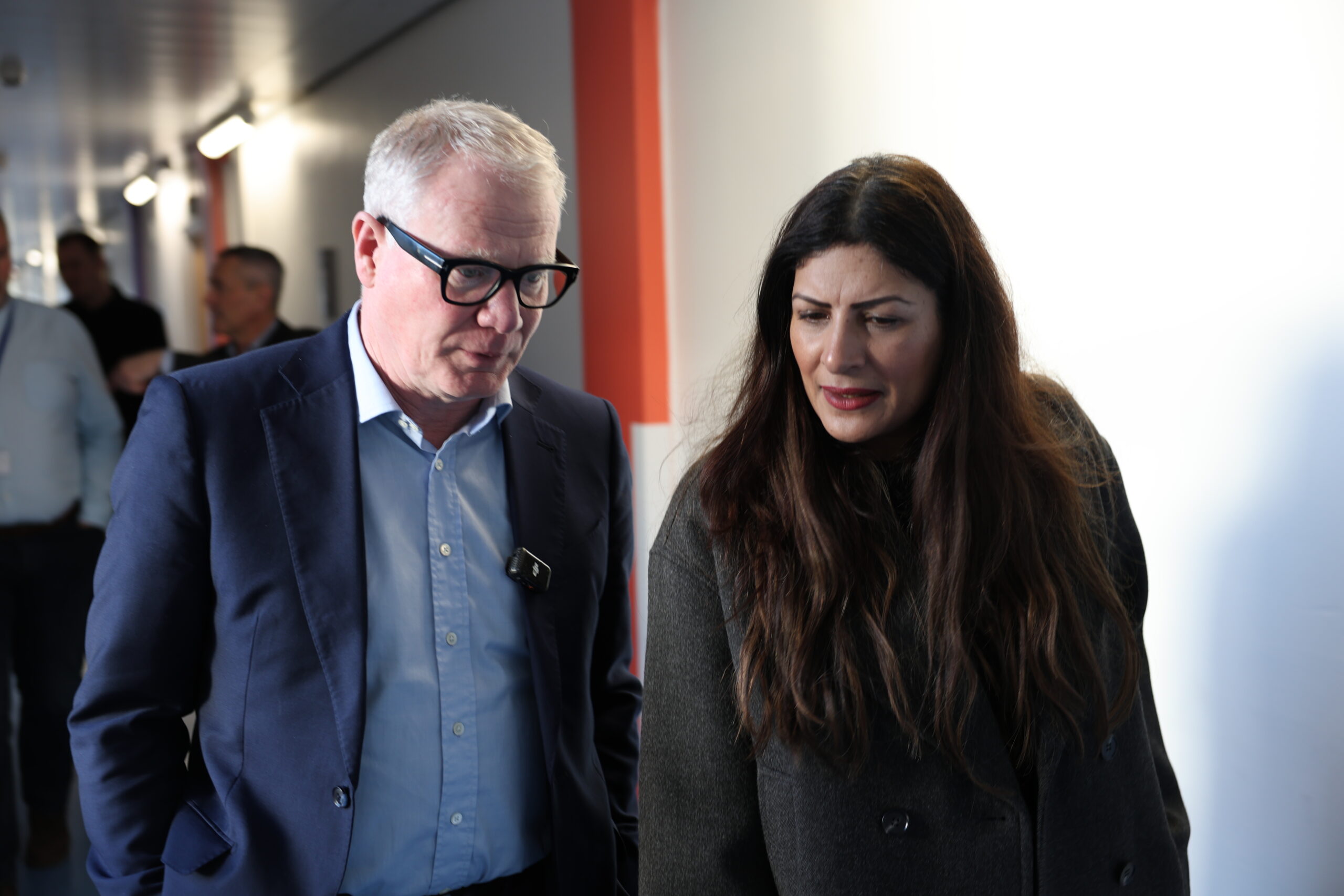
Innovative West Midlands health tech companies showcased their new developments, including an AI-powered sensor to be used after surgery to reduce hospital stays, to leading regional political figures.
A delegation from the University of Birmingham and the West Midlands Combined Authority joined Richard Parker and Preet Gill, MP for Birmingham Edgbaston, during a meeting with innovators behind some of the next-generation health technologies supported by the WMHTIA.
The WMHTIA has united 21 partners across academia, industry, and NHS, to provide innovators with support in developing and commercialising their technologies. This has been funded through the pilot Innovation Accelerator programme, which is led by Innovate UK on behalf of UK Research and Innovation and the Department for Science, Innovation and Technology.
This new model of funding focuses on locally-led innovation to drive economic growth and technological advancement by supporting regional innovative businesses, researchers and entrepreneurs. In the West Midlands, local leadership has been driven by a partnership comprising of the West Midlands Combined Authority, universities and other research institutions, and senior industry representatives.
The visit from Richard Parker comes as a further £30m was spread equally across three UK city-regions participating in the pilot Innovation Accelerator programme, which includes a funding boost of £4m for the WMHTIA to continue its support of Health Tech innovators in 2025/26. This additional funding builds on the £100 million already invested between 2022 and 2025.
The enterprises that showcased their technologies during the visit include:
Ademen Ltd - www.ademen.io
An external sensor that used AI to track bowel activity post-surgery, potentially reducing hospital stays.
WMHTIA support:
- Investigating technical improvements and exploring other use cases (Partners: Manufacturing Technology Centre and Aston University)
- Usability testing and determining benefits across specialties (Partner: University Hospitals Birmingham NHS Foundation Trust)
- Introductions to corporate partners, potential funding opportunities and commercial support (Partner: Plug and Play)
- WMHTIA grant recipient
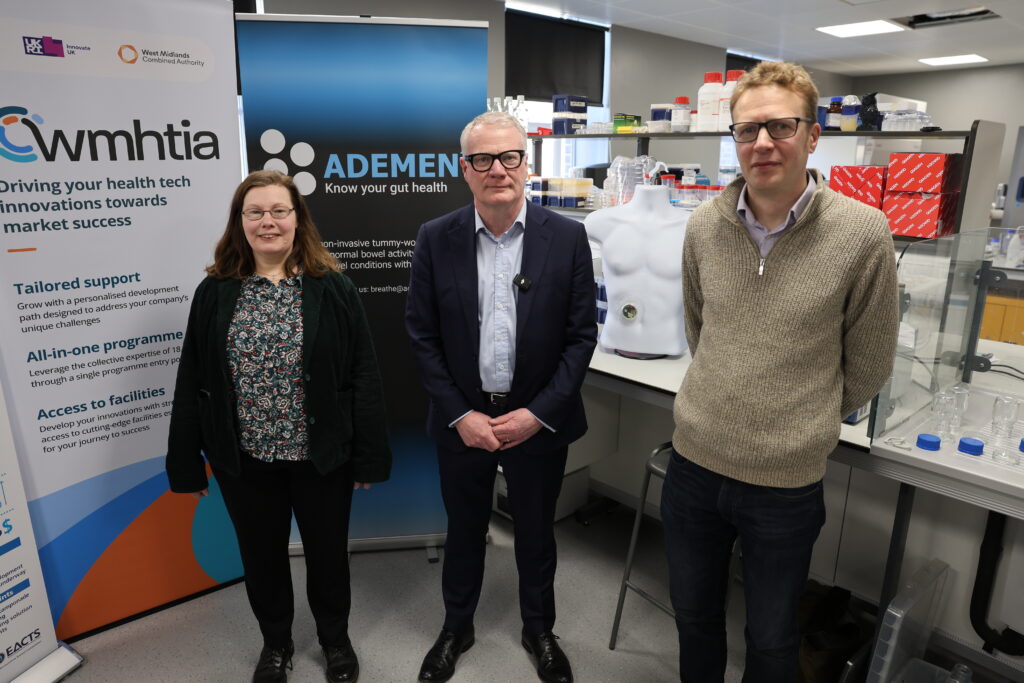
Enable Design Ltd - www.trixiseating.com
An adjustable wheelchair seating system that adapts to growth and posture changes over time.
WMHTIA support:
- Grant application and marketing support (Partner: Technology Supply Chain)
- Technical assessment of new product introduction and definition of product development & manufacturing direction (Partner: Manufacturing Technology Centre)
- WMHTIA grant recipient
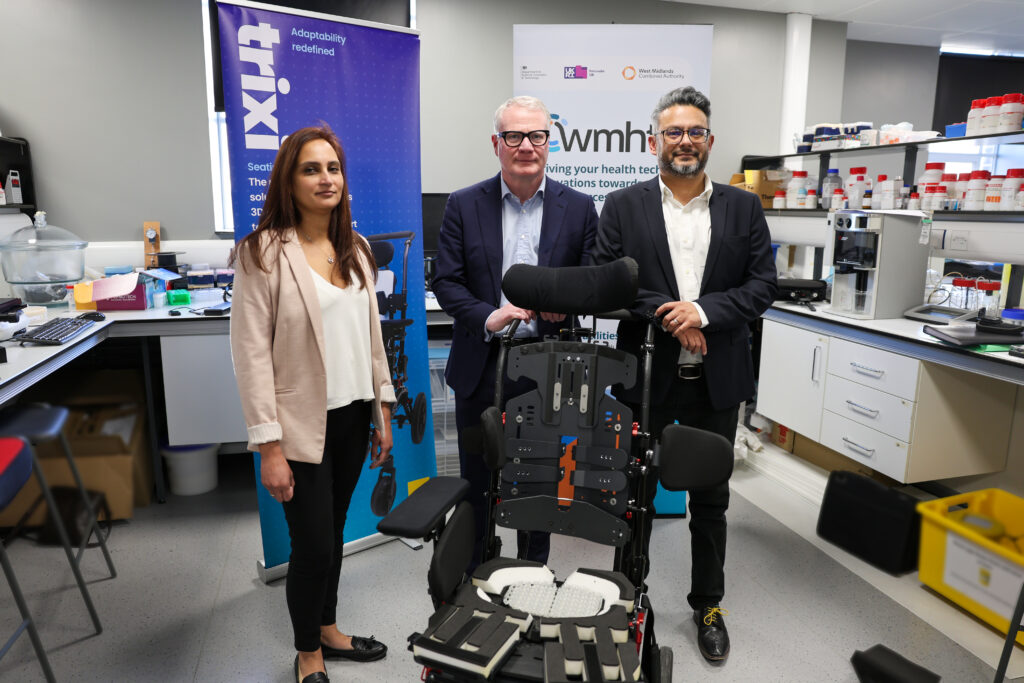
Fallouh Healthcare Ltd – www.fallouh.co.uk
Early diagnosis of cardiac tamponade which allows a planned return to theatre with reduced complications, mortality and cost potentially reducing ICU stay by 0.7 days and decreasing end-organ ischaemia by 40%.
WMHTIA support:
- Usability and functionality testing (Partner: University Hospitals Birmingham NHS Foundation Trust)
- WMHTIA grant recipient
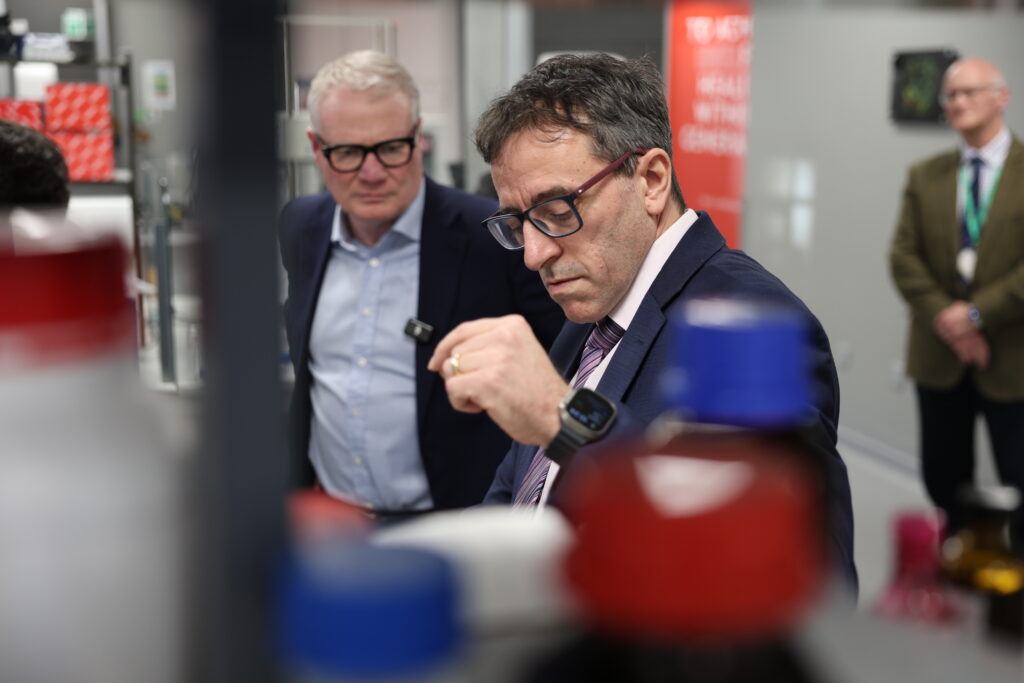
MICA Biosystems Ltd - www.micabiosystems.co.uk
A biotech start-up using nanotechnology for regenerative medicine, advanced therapies, drug discovery and 3D organoid cell culture.
WMHTIA support:
- Investment raising opportunities to continue clinical trials (Partner: Plug and Play)
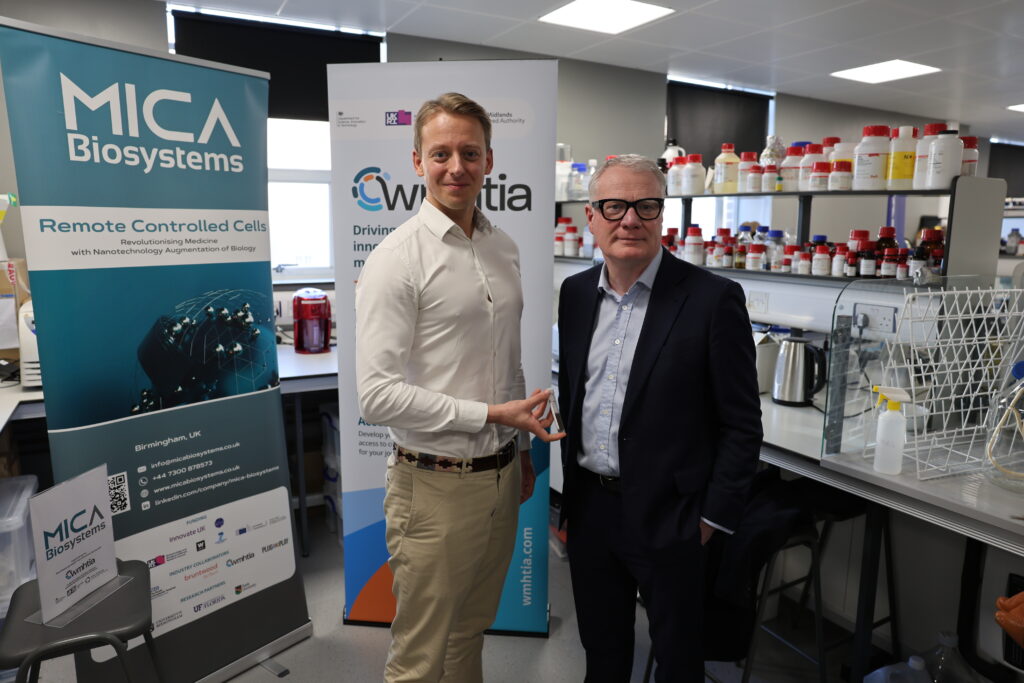
Professor Neil Hanley, Pro-Vice-Chancellor and Head of the College of Medicine and Health at the University of Birmingham and Professor Marika Taylor, Pro Vice Chancellor and Head of College of Engineering and Physical Sciences, welcomed the mayor and MP at the University’s Institute for Translational Medicine.
In an introductory presentation, Professor Hanley touched on the necessity for continued government support for initiatives such as the WMHTIA, which promotes economic growth, improves lives, and is leading in the adoption of innovative healthcare solutions such as Artificial Intelligence (AI) across the West Midlands.
Richard Parker, Mayor of the West Midlands, said: “The West Midlands has been leading the way with medical advancements for decades – from X-rays in the late 19th century to the pacemaker in the 1960s.
Now, a new generation of entrepreneurs and medical pioneers are using groundbreaking technologies to cut hospital waiting times, improve mobility, and speed up recovery from lifesaving surgery.
In the West Midlands, we are investing in top talent and cutting-edge research that is finding solutions to some of the medical world’s most difficult questions. These innovations are improving the lives of people across the region, and across the world.”
Professor Marika Taylor, Pro Vice Chancellor and Head of College of Engineering and Physical Sciences at the University of Birmingham, said: “The WMHTIA is playing a pivotal role in supporting companies in bringing healthcare devices and innovations to the market. The additional funding will enable us to deepen the Accelerator’s impact on the region.”
Professor Neil Hanley, Pro-Vice-Chancellor and Head of the College of Medicine and Health at the University of Birmingham, said: “We are grateful for the hard work of the mayor and colleagues from the West Midlands Combined Authority in helping us secure this extension. Health and Life Sciences is at the heart of our opportunity for economic growth and the Accelerator has already delivered tremendous impact.”
The WMHTIA’s success lies in collaboration. Alongside the scale of its delivery partnership, the programme has created cross-sector connections, engaging with policymakers, industry leaders, and international research institutions, ensuring that cutting-edge health tech solutions reach patients more efficiently.
Key collaborations include:
- Partnering with NHS trusts and primary care to test and implement new medical technologies in real-world healthcare settings
- Supporting national policy development through engagement with regulatory bodies such as the MHRA and NHS England
- International research collaborations, including participation in global health tech innovation networks – e.g. the establishment of SPARK The Midlands (led by Aston University), a global accelerator founded by Stanford University.
The WMHTIA has for the past two years focused on locally-led innovation to drive economic growth and technological advancement, and has supported:
- 110 jobs created or safeguarded in the West Midlands over three years
- 105 health tech companies/academic teams provided with intensive bespoke development support
- £2.48m awarded in secondary grant funding to support health tech development
- £28.4 million in co-investment secured at year one
- 269 health tech enterprises engaged in WMHTIA's support network
- Development of strategic partnerships between the region’s academic partners University of Birmingham, NHS trusts, and private industry
If you are not a WMHTIA registered company, you can sign up to the WMHTIA Community and be amongst the first to hear about exclusive workshops, events, and future support opportunities within the WMHTIA.
Led by Innovate UK on behalf of UK Research and Innovation, the pilot Innovation Accelerators programme invested £100m in 26 transformative R&D projects between 2022-25 to accelerate the growth of three high-potential innovation ecosystems – Glasgow City Region, Greater Manchester and West Midlands. The programme was boosted by an additional £30m of public funding for 2025/26 spread equally across the regions. Innovation Accelerators is piloting a new model of R&D decision making that empowers local partnerships to harness innovation to drive regional economic growth, attract private investment, and develop future technologies.
